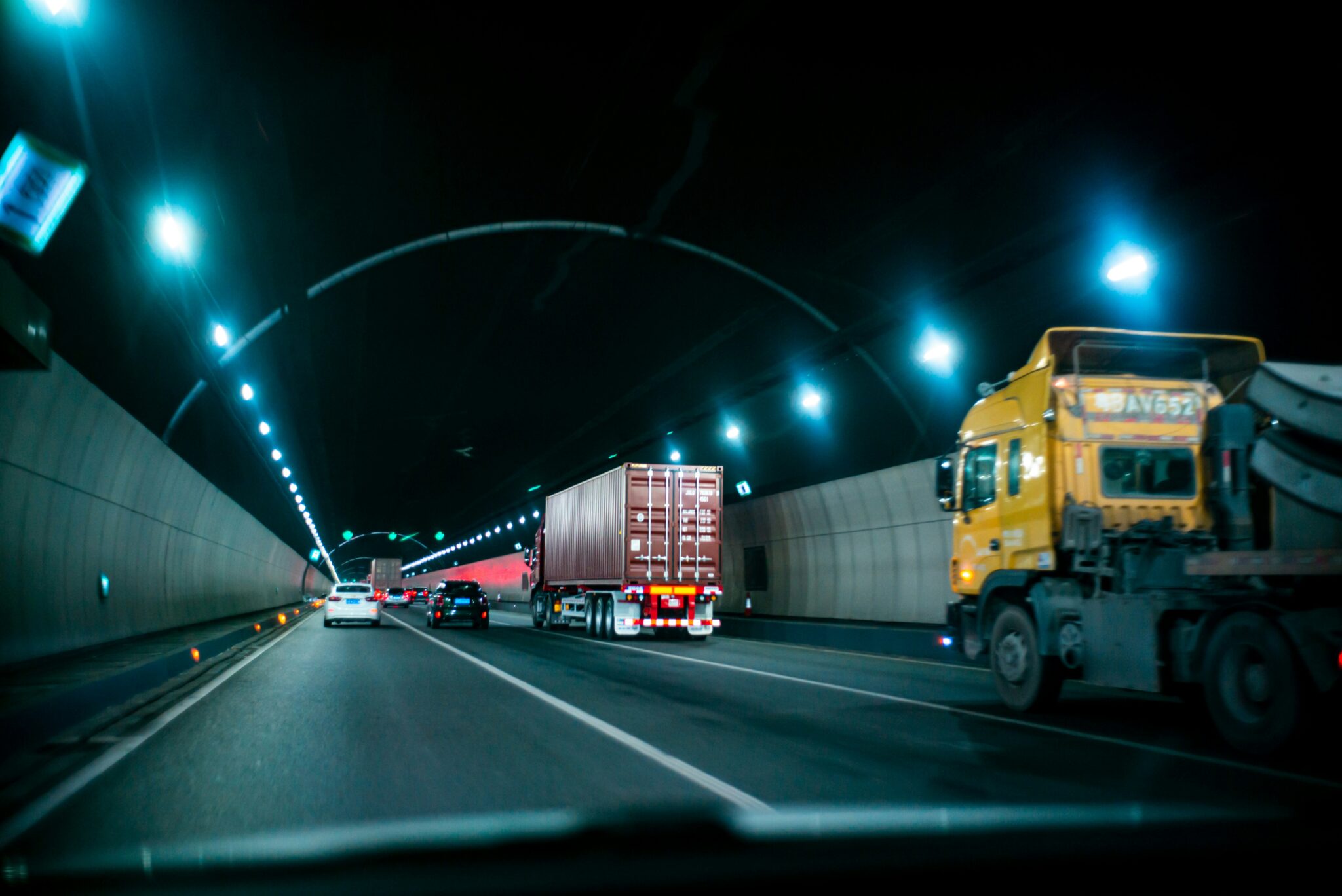How Does the Involvement of Multiple Parties Affect Your Truck Accident Case?
When you are involved in a truck accident, determining liability and seeking compensation can become extremely complex if multiple parties are involved. Unlike a simple two-vehicle collision, multi-vehicle truck accidents present unique challenges that can significantly impact the outcome of your injury claim and the quest for justice.
Complex Liability Determination
Establishing liability in a truck accident with several parties involved is no easy feat. Meticulous investigation and evidence gathering are imperative to identify the at-fault party or parties and assess their share of responsibility.
Identifying All Potentially Liable Parties
The sheer number of entities that could potentially be at fault makes liability assignments quite complicated. These include:
- The truck driver
- The trucking company that employed the driver
- The company shipping the goods
- Manufacturers or maintenance companies responsible for truck or component defects
- Other drivers involved in the collision
- Government agencies overseeing road safety and maintenance
Pinpointing all possible contributors to the accident necessitates a thorough liability investigation.
Complex Fact-Finding and Analysis
Proving the elements of negligence against multiple defendants demands an in-depth analysis of the circumstances surrounding the crash. Crucial evidence must be gathered through:
- Inspection of vehicles, components, load distribution, etc.
- Analysis of ELDs, GPS data, maintenance records
- Review of driver logs, training history, traffic violations
- Study of weather reports, road conditions
- Eyewitness interviews
- Accident reconstruction
Experts are often called upon to help interpret evidence and determine causal factors and negligence. Their assessments can directly impact findings of liability.
Disputes Over Allocation of Fault
A major difficulty is apportioning liability percentages across various negligent parties in a fair and well-substantiated manner. Disagreements frequently arise, with each entity minimizing its fault share to reduce payouts.
Comprehensive evidence and astute legal navigation are often required to establish equitable blame distribution.
Shared Responsibility
Another key complexity is the possibility of multiple defendants sharing culpability for the truck accident. Liability law principles like joint and several liability then come into play with serious implications.
Joint Liability
Anyone injured by the negligence of others can recover full damages from them collectively or individually, regardless of individual fault shares. One defendant can potentially be held responsible for 100% of damages even if they were only partly culpable.
Several Liability
Under several liabilities, two or more defendants each owe the plaintiff only their allocated percentages of liability. However seeking respective payouts from each party can prove challenging, especially if assets are insufficient.
Disputes Over Compensation
With liability split among many, heated conflicts often erupt over who pays how much. Defendants try to aggressively minimize compensation, while you fight to claim full entitled damages from liable parties. As a result, case complexity escalates significantly.
Legal Representation
Given the high stakes involved, expect each entity implicated in the accident to hire aggressive legal counsel to contest allegations, limit liability, and minimize payouts.
More Adversarial Legal Process
The involvement of multiple law firms makes the proceedings more likely to be adversarial in nature. Their sole job then becomes to guard client interests, not establish truth or justice.
Expect stonewalling of evidence requests, denial of obvious negligence, and other adversarial tactics.
Claim Suppression Tactics
Defense lawyers often employ questionable approaches to suppress or deny legitimate injury claims. For instance, they may distort accident facts, discredit medical reports, raise doubts over claimed losses, or make unreasonable lowball offers. A power imbalance threatens a fair outcome.
The Need for Strong Legal Advocacy
To counter suppression strategies and the might of corporate defense firms, the accident victim needs to find the best possible truck accident lawyer near them. This is because competent truck accident lawyers with the resources to investigate, substantiate, negotiate, and litigate injury claims are often indispensable in such cases as they can vigorously champion their rights.
Insurance Coverage Issues
Another key struggle is navigating complex insurance matters involving multiple carriers. Securing sufficient coverage for extensive crash damages can necessitate deft legal maneuvering.
Multiple Insurers Involved
There may be several insurers representing defendants like the trucking firm, shipping company, driver, manufacturers, or government agencies. Each policy likely has different liability limits, exclusions, and clauses – complicating matters greatly.
Insufficient Coverage Limits
Since commercial policies have varying caps on crash payouts, available coverage across all insurers may fall way short of actual loss claims. This necessitates legal ingenuity to access more funds like personal or excess insurer assets.
Coordinating Negotiations
Multilateral negotiations with diverse insurers to settle injury and damage claims can drag on interminably. Each utilizes adjusters and lawyers to limit payouts. A seasoned legal team can streamline talks and optimize outcomes.
Complex Claims Process
With liability split among multiple parties, the accident claims process becomes exceedingly tangled. From collating paperwork to resolving disputes, everything gets more cumbersome.
Gathering Evidence from Diverse Parties
Vital crash documentation must be obtained from each defendant including insurers, companies, and government agencies through subpoenas or discovery motions. Streamlining evidence collection accelerates case progress.
Multilateral Negotiation Complexities
Settling multiple claims arising from the same event involves simultaneous bargaining with several liable parties and insurers. Discussions can drag out because consensus is elusive.
Bureaucracy and Red Tape
Bureaucracy and red tape substantially delay proceedings when multiple corporations and state entities are involved. Legal assistance is invaluable to cut through the rigmarole.
Potential for cross-claims
In multi-defendant cases, liable parties routinely file cross-claims against each other to offset possible damages payable to the plaintiff.
Comparative Negligence Cross Claims
Trucking firms, shipping companies, and other negligent entities often file cross complaints blaming others for the crash. They seek to recoup from co-defendants damages owed to the claimant based on an allocation of fault percentages.
Contribution Cross Claims
One at-fault party can demand other equally liable parties to contribute their share of plaintiff compensation as established during the trial. This helps prevent one defendant from paying more than their determined portion.
Counterclaims
In addition, co-defendants will often assert counterclaims challenging allegations within cross-complaints. So trucking outfit A may file a cross-claim against manufacturer B who then counterclaims denying responsibility. Such complications grow exponentially with more liable entities.
Increased Litigation Likelihood
When multiple parties share accountability for the truck smashup, the likelihood of litigation shoots up tremendously. Reasons include fault disputes, collective denial of liability, and multiple insurers rejecting or underpaying claims.
Contested Liability Allocation
If crash co-defendants challenge their assigned liability percentages, the matter must head to court for resolution by a judge or jury. Without consensus, trials become necessary.
Refusal to Settle
Insurers rarely concede when large damages are claimed against well-heeled clients like prominent trucking firms or product manufacturers. They often prefer litigation over fair settlements, trying to disprove liability. Trials result.
Financial Motivations
Courtroom battles help defendants delay and potentially reduce payouts. Allowing cases to drag on also enables them to hold onto funds longer while earning interest. These financial motivations prompt litigation.
Expert Involvement
Given the technical complexity surrounding multi-defendant truck accidents, specialist expert witnesses will likely play an outsized role by providing scientific and evidence-based liability assessments.
Accident Reconstruction Experts
These specialists use advanced analysis of physical evidence and crash data to piece together accident dynamics and sequences. Their modeling accurately identifies causal factors and party negligence.
Medical Experts
Doctors expertly assess patient diagnostic reports, treatment records, prognosis outlooks, and more to ascertain the extent of crash-induced physical, neurological, and psychological harms. This guides informed damage valuation.
Industry Specialists
Experts like truck mechanics, accident statisticians, law enforcement veterans, etc. offer invaluable domain-specific perspectives. Their testimonies help establish or refute liability claims.
Final Thoughts
Multi-defendant truck accident cases clearly pose tremendous challenges compared to straightforward two-party crashes. From liability disputes to insurance battles and expert involvement, injured victims face a rocky quest for justice and due compensation.
By arming yourself with top legal talent possessing the resources and tenacity to take on powerful corporate interests, you substantially improve the odds of navigating case complexities successfully. The knowledge that seasoned attorneys stand by your side ready to counter questionable defense tactics and bureaucratic roadblocks grants will grant you invaluable peace of mind.
Ultimately, top-notch legal support makes all the difference between receiving fair claim outcomes or getting railroaded by unscrupulous insurers and negligent parties.
This article has been published in accordance with Socialnomics’ disclosure policy.











